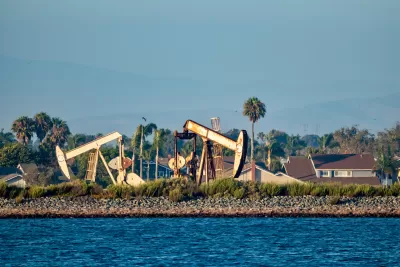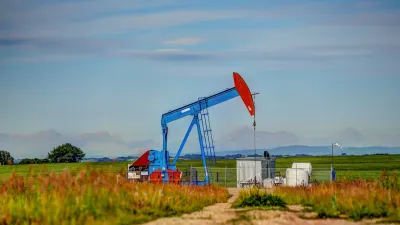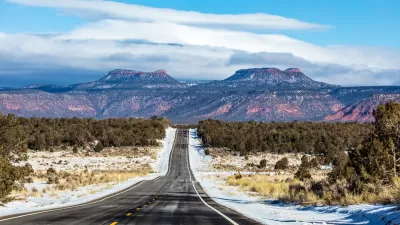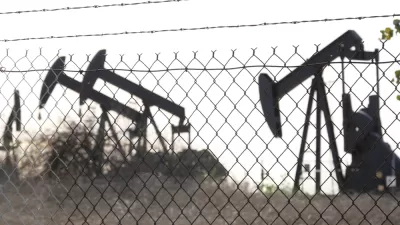The new rules would raise more money for cleanup operations and bring more revenue to oil-producing states, but are a far cry from fulfilling President Biden’s promise to end extraction on public lands.

Changes to regulations governing oil drilling on public lands proposed by the Biden administration could “dramatically increase the operators’ financial obligations, boost the royalties that companies pay and tighten permissive leasing regulations,” writes Nick Bowlin in High Country News.
“Many Western environmental advocates and public officials praised the proposal as the much-needed and long-overdue restructuring of a system that has always favored industry.” Bowlin notes that the financial assurance reforms included in the proposal are “a major deal,” with the new rules raising the bonding level for new leases and the state-level blanket bond to combat stagnant bonding levels that no longer cover the cost of site cleanup. “A 2019 report by the U.S. Government Accountability Office found that 99% of federal oil and gas leases have bonds that would be unable to pay for the full cost of cleanup.”
The proposal also raises the percentage oil companies must give to states and raises the minimum bid for public-land drilling lease auctions.
“Some climate advocates, however, said that an administration that calls itself a climate champion should be working to actively phase out public land oil and gas production, rather than attempting to reform it.” Bowlin points out that President Biden ran on a promise of ending oil drilling on public lands, “But during his first two years in office, his administration approved more oil and gas permits than former President Donald Trump did in the same time frame.”
FULL STORY: New public-land drilling rules would overhaul the Western oil industry

Maui's Vacation Rental Debate Turns Ugly
Verbal attacks, misinformation campaigns and fistfights plague a high-stakes debate to convert thousands of vacation rentals into long-term housing.

Planetizen Federal Action Tracker
A weekly monitor of how Trump’s orders and actions are impacting planners and planning in America.

Chicago’s Ghost Rails
Just beneath the surface of the modern city lie the remnants of its expansive early 20th-century streetcar system.

Bend, Oregon Zoning Reforms Prioritize Small-Scale Housing
The city altered its zoning code to allow multi-family housing and eliminated parking mandates citywide.

Amtrak Cutting Jobs, Funding to High-Speed Rail
The agency plans to cut 10 percent of its workforce and has confirmed it will not fund new high-speed rail projects.

LA Denies Basic Services to Unhoused Residents
The city has repeatedly failed to respond to requests for trash pickup at encampment sites, and eliminated a program that provided mobile showers and toilets.
Urban Design for Planners 1: Software Tools
This six-course series explores essential urban design concepts using open source software and equips planners with the tools they need to participate fully in the urban design process.
Planning for Universal Design
Learn the tools for implementing Universal Design in planning regulations.
planning NEXT
Appalachian Highlands Housing Partners
Mpact (founded as Rail~Volution)
City of Camden Redevelopment Agency
City of Astoria
City of Portland
City of Laramie





























